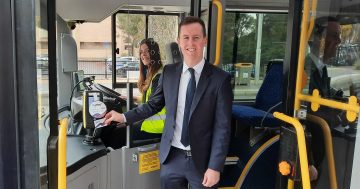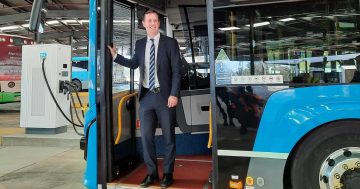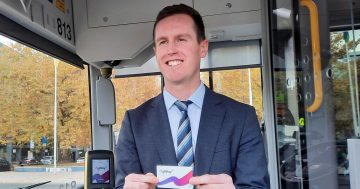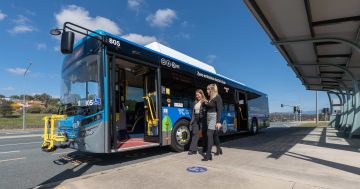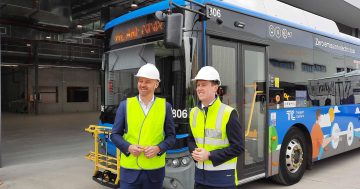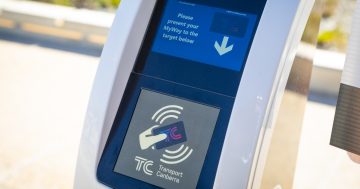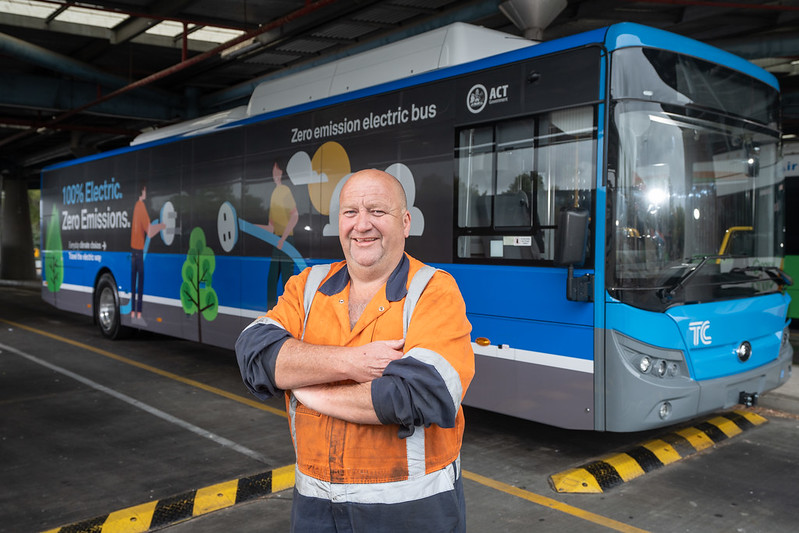
The ACT’s first 12 electric buses will soon be ready for service. Photo: ACT Government.
This year will be a watershed for Canberra’s public transport system, with the first batch of electric buses taking to the roads and a new ticketing system to be implemented.
Announcements on both are imminent this month.
The first of the 12 Chinese Yutong E12 battery electric buses being leased by the Territory arrived in Canberra before Christmas to be wrapped in Transport Canberra livery and made passenger-ready.
The others are in Sydney being commissioned and kitted out with ticketing, CCTV and communications systems.
Asked when all 12 buses will be in Canberra and running, Transport Minister Chris Steel said further announcements would be made mid-January.
The government is also buying an additional 90 electric buses, which are expected to be delivered in the next three years.
The new quiet-running Yutong buses will be charged at the existing Tuggeranong depot, but subsequent orders will be charged in Belconnen and the new Woden depot upon completion in 2025.
There had been speculation that Mr Steel would announce the next-generation ticketing system before Christmas, but the procurement process is still in the final stages before awarding a contract.
A TCCS spokesperson said it was a long-term critical contract for the Territory so significant time and effort were being applied to ensure due diligence before finalising the procurement process.
The MyWay replacement will revolutionise how passengers pay for travel, allowing them to use credit cards and apps such as Apple Pay and other similar payment platforms.
The changes to modernise the bus system come as a new timetable from March, cutting many suburban services, threatens to take the gloss of the innovations.
But Mr Steel reiterated that the disruptions from infrastructure projects on the southern gateway to the city drove the service changes, which would be reviewed in the middle of the year.
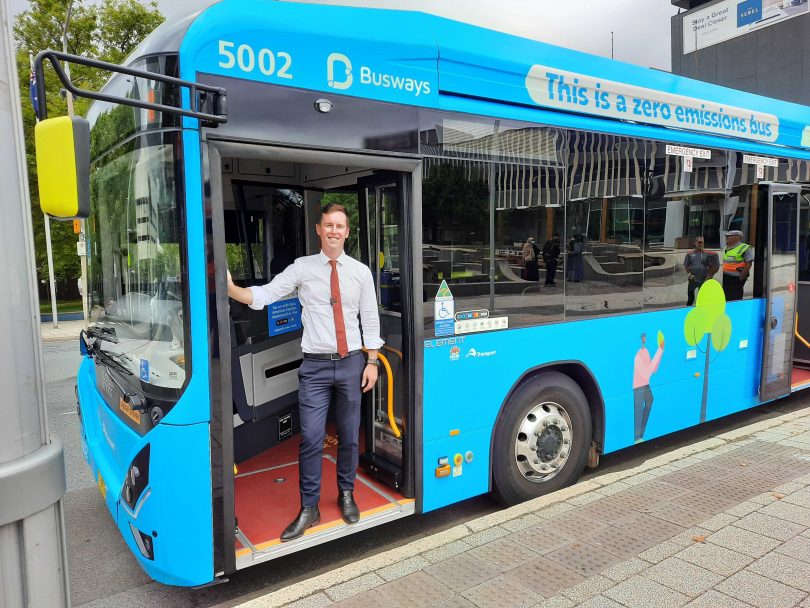
Transport Minister Chris Steel: service cuts will be temporary. Photo: Ian Bushnell.
He said the cuts were based on modelling of how the raising London Circuit and Commonwealth Avenue Bridge works would impact the traffic network.
“We need to make adjustments to accommodate the extra time it takes for buses to move through the traffic network associated with the disruption caused by major infrastructure projects,” he said.
“Once we’ve assessed the reality of the disruption, then we’ll look at how we can make improvements to the timing of bus routes and improvement to the bus timetable in the second half of the year.”
Mr Steel said the disruption would affect how everyone moves around the city over the coming years.
“We really appreciate everyone’s patience while we go through this period of disruption, but it is going to be temporary,” he said.
The government’s priority was reliability and maintaining trust in the public transport system.
“We want to make sure that when a bus is timetabled that it shows up, ” Mr Steel said.
“What we’ve done to make sure that buses are a great option for people as an alternative during this disruption period is to make sure we’ve got really frequent services during peak times.”
The other significant change this year will be the demolition of the Woden interchange to make way for the construction of the new CIT campus.
The Woden bus interchange will close permanently from the last service on Sunday, 29 January.
A temporary interchange has been built on the car park between the Hellenic Club and Grand Central Towers while the new interchange on Callam Street is built.













